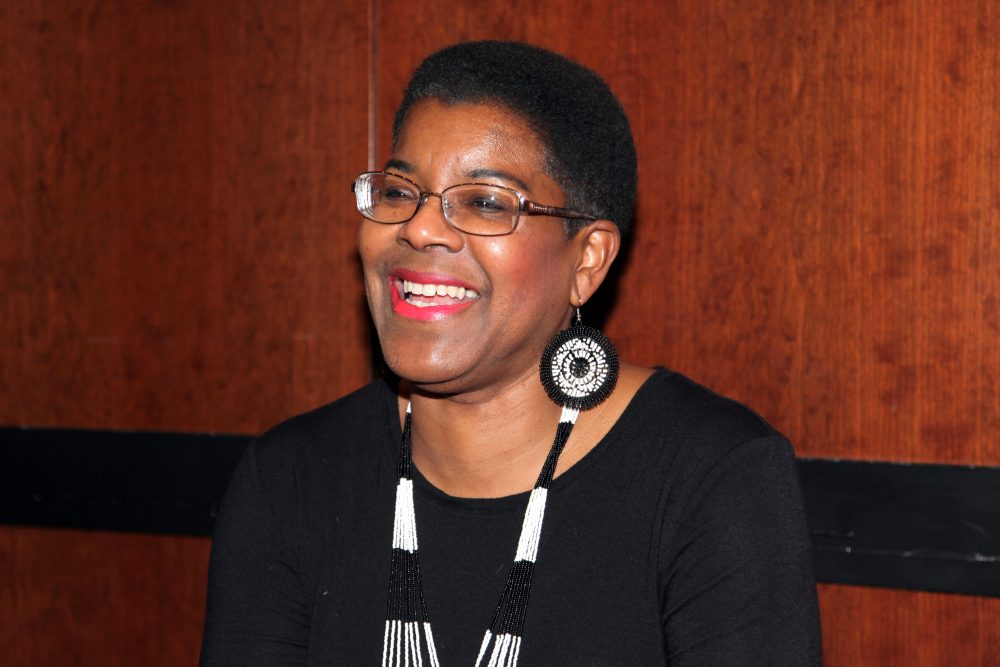
Photo by Aaron Salcido.
Tananarive Due teaches Afrofuturism and Black Horror at UCLA and in the creative writing and screenwriting MFA programs at Antioch University Los Angeles/Santa Barbara. The American Book Award winner and NAACP Image Award recipient is the author of seven solo novels, the co-author of six novels with her husband, Steven Barnes, and co-author of a civil rights memoir, Freedom in the Family: A Mother-Daughter Memoir of the Fight for Civil Rights (with her late mother, Patricia Stephens Due). Before taking part in a Zócalo/UCLA panel discussion titled “Will Black Panther Really Change Hollywood?” at the ArcLight Hollywood, she spoke in the green room about time travel, the genius of Octavia Butler, and the good and bad of collaborating with relatives.
What superpower would you most like to have?
Just strictly a superpower—and not creating wealth for people who don’t have it? It would be flying, especially on my commute to UCLA.
What dessert do you find impossible to resist?
Homemade cake—not sheet cake from a supermarket.
What teacher or professor changed your life, if any?
I’m going to give the credit to Mitchell Kaplan, 10th-grade English teacher at Selfridge, a Miami, Florida, high school. I had a 200-page handwritten manuscript I was calling a novel, and he read the whole thing, and gave me notes on it. That never turned into anything, but it fixed in my mind that I was a writer.
Where do you go to be alone?
My backyard.
What is your favorite Octavia Butler book?
She’s so good. I guess in some way I would say Kindred, the time-travel story, the question of what it would be like to go back to slavery. That’s a question for all of us to ponder—that slavery was real, and how all of us would have been as actors in that system, no matter what color we were.
What question do your students most often ask you?
Most students ask questions about story—how to write story, how to find your inspiration.
You write often with your husband, and wrote a book with your mother. What’s the best thing about collaborating with a family member in writing?
The best thing about collaborating with my mother is that we did it, and we did it before she passed away. With my husband, it’s a daily collaboration. Just today, he was bouncing an idea off of me. Just that idea that if you run to the end of your own creativity, that you can pass [the task] on to another writer. I often say it’s like having another lobe on my brain. He has strengths I don’t, and vice versa.
What’s the worst thing about collaborating with a family member in writing?
The worst thing is not having the freedom to do what you want to do, when you want to do it, and having to run it through committee, and not have final say on things. Sometimes I have to acquiesce and agree, ‘I’ll do it your way.’ So the hardest thing is having to make a choice you wouldn’t make to satisfy your writing partner.
What do you love most about ghost stories?
There are two things I love most about ghost stories. The first is that there might be something else after life—that we have perceptions beyond the grave. Second, it’s this idea that usually ghosts want to have their story told. Or they want justice of some kind. To me, that reminds me so much of why I write … to make sure those stories are told, and sometimes to make sure justice does get done.



